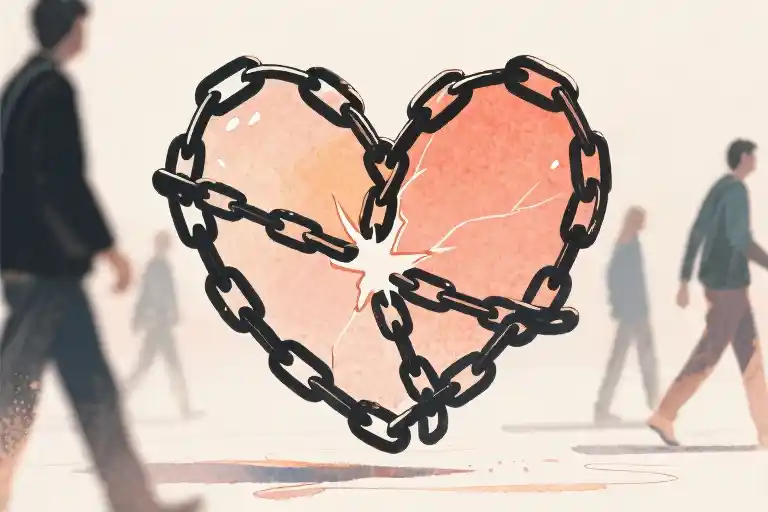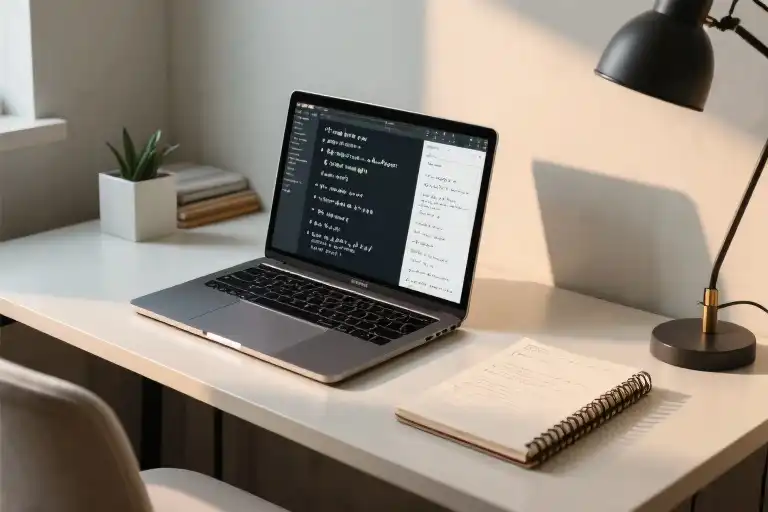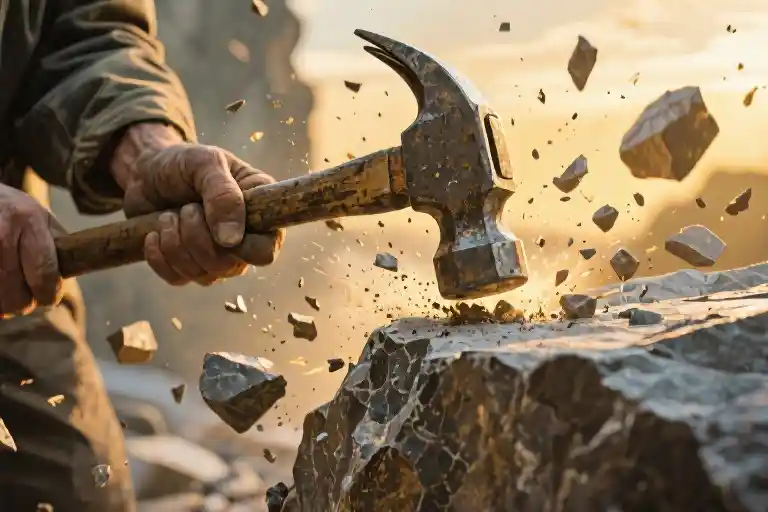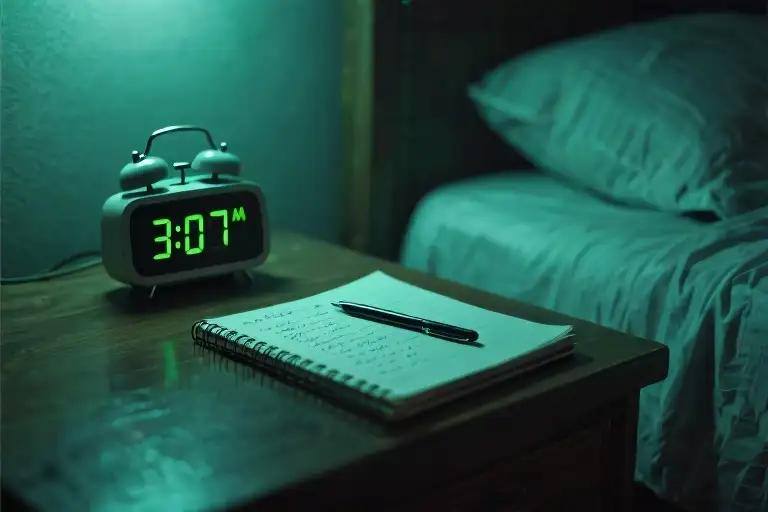The phone screen casts a blue glow on my face as I mindlessly scroll through Instagram at 11:37 PM on Sunday. My thumb moves automatically while my chest tightens with each passing minute – tomorrow’s to-do list already pressing against my ribs like overdue library books. The strangest part isn’t the fatigue weighing down my eyelids, but the hollow static filling my skull where motivation used to live.
Three unread work emails blink in my inbox. A half-finished grocery list sticks to the fridge. My running shoes gather dust by the door where they’ve sat untouched since Wednesday. Every unfinished task vibrates with silent accusation: You should be… You ought to… Real adults don’t…
This particular flavor of exhaustion defies logic. It’s not the satisfying weariness after a hike or productive day, but the peculiar drain of existing in a world that measures worth in checked boxes and productivity metrics. Even now, part of me tallies this moment as ‘wasted time’ – nevermind that my body clearly needs rest.
We’ve been conditioned to treat energy like an inexhaustible resource, pushing through fatigue like marathon runners ignoring blisters. But what if the problem isn’t our fluctuating motivation, but the unreasonable standards we’ve internalized? When ‘what adults do’ becomes stones in your pockets dragging you underwater, perhaps it’s time to question who defined adulthood this way in the first place.
The ceiling fan above me spins with quiet consistency. Somewhere outside, a tree sheds leaves without apology. Nature understands cyclical rest isn’t failure – it’s physics. Yet here we are, feeling guilty for needing what every living organism requires. That critical voice whispering “You’re falling behind” sounds suspiciously like outdated hustle culture propaganda dressed up as wisdom.
Tonight, I’m practicing radical honesty: I have no inspirational advice or life-changing hacks. Just the quiet recognition that sometimes existing is enough. That blue light from my phone will keep glowing. The emails can wait until morning. And this heaviness? It’s not a character flaw – just proof I’m human.
The Exhausting Truth About Being an Adult
The alarm goes off at 7:03 AM for the third time, and your hand slaps the snooze button with muscle memory perfected over years. There’s that familiar weight pressing down on your eyelids, heavier than any blanket. You count the meetings scheduled before lunch, the unanswered emails blinking in your mental inbox, the grocery list that never seems to complete itself. The ceiling above your bed becomes a projection screen for every responsibility you’ve been avoiding.
This isn’t just tiredness – it’s the particular flavor of fatigue that comes with being a card-carrying adult. That moment when you realize nobody’s coming to rescue you from your own life. Three distinct scenarios keep playing on repeat:
1. The Morning Paralysis
Your feet hit the floor, but your nervous system refuses to follow. The gap between ‘awake’ and ‘functional’ stretches into an impossible canyon. That voice pipes up: “Real adults don’t need three alarms. Real adults meditate before sunrise.”
2. The Sunday Night Dread
7:42 PM, phone in hand, scrolling through someone else’s vacation photos while your stomach knots. The weekend evaporated somehow, and now you’re doing mental math about sleep hours versus unfinished tasks. The internal narrator sneers: “Productive people meal prep on Sundays. You’re just… existing.”
3. The 2 AM Reckoning
Dark room, glowing phone screen, scrolling through job postings you’ll never apply to. Your brain helpfully replays every awkward conversation from the past decade. The commentary track plays: “At your age, [insert relative’s name] already had [impressive life milestone].”
We’ve all heard these scripts. They sound suspiciously like:
- The high school teacher who said “potential” like it was a ticking time bomb
- The LinkedIn influencer preaching “hustle culture” between affiliate links
- That one aunt who measures life progress in grandchildren and square footage
Here’s what nobody told us: The Stanford marshmallow experiment about delayed gratification? It’s been weaponized. The original study measured how children waited for treats, not how adults should grind themselves into exhaustion. Somewhere along the way, “self-control” got twisted into “self-flagellation.”
That critical voice in your head? It’s not your conscience – it’s internalized capitalism. When it whispers “You could be doing more”, try asking “More for whose benefit?” The answer might surprise you.
Who’s Putting a Price Tag on Your Worth?
The notification pings at 2:37 AM from a tech founder posting about their ‘hustle routine’. You scroll past another influencer’s ‘5 AM productivity ritual’ while lying in bed, fingers sticky with late-night snack residue. This is how capitalism repackages exhaustion as virtue – by convincing us our value compounds with every checked box.
Social media algorithms operate on a simple economic principle: they reward performance. That ‘liked’ post about pulling all-nighters? That viral thread on side hustles? Each interaction reinforces the lie that exhaustion equals excellence. The platforms profit from our collective burnout, feeding us endless comparisons disguised as inspiration. What began as sharing tips became an arms race of visible busyness.
Consider the Spanish siesta – not laziness, but centuries of wisdom acknowledging human rhythms. Workers disappear into cool, dark rooms when the sun is fiercest, returning when energy naturally resurges. Contrast this with Silicon Valley’s sleep-deprivation one-upmanship, where founders brag about ‘hacking’ basic biological needs. One culture treats rest as infrastructure; the other as inefficiency to eliminate.
We’ve internalized industrial-era thinking where people became interchangeable productivity units. But you aren’t a machine whose worth calculates in output-per-hour. Those middle-of-the-night doubts? They’re not personal failures – they’re the reasonable protests of a psyche forced to operate against its design. The voice whispering ‘you should be doing more’ doesn’t belong to you; it’s the echo of systems that benefit from your constant striving.
When Portuguese fishermen take ‘mandatory downtime’ during rough seas, no one accuses them of weakness. They understand storms pass, and boats need maintenance. Your low-energy days work the same way – not as moral failings, but as biological maintenance periods. The real rebellion isn’t working harder; it’s refusing to let your humanity be monetized.
Next time that internal auditor demands productivity reports, ask: Who profits from this measurement? The answer might surprise you.
A Gentle Guide to Replenishing Your Energy
We’ve all been there—that moment when scrolling through your phone feels like lifting weights, when replying to a simple text message requires the mental effort of writing a thesis. The modern obsession with productivity has turned rest into a guilty pleasure, something we sneak in between ‘important’ tasks like thieves stealing moments for ourselves. But what if we’ve been approaching this all wrong?
Reading Your Energy Levels
Your energy isn’t broken; it’s speaking. Learning to interpret its language is the first step toward sustainable living. Here’s how to decode what your body and mind are telling you:
Low-energy days often manifest as:
- Difficulty focusing on simple tasks
- Physical heaviness (that ‘walking through molasses’ feeling)
- Irritability at minor inconveniences
- Re-reading the same paragraph three times without comprehension
Medium-energy periods might look like:
- Ability to complete routine tasks but no creative spark
- Mild procrastination on challenging projects
- Occasional mental fog but generally functional
High-energy windows typically involve:
- Ideas flowing easily
- Physical lightness and alertness
- Willingness to tackle complex problems
The crucial insight? These states aren’t moral failures or successes—they’re biological realities as natural as tides. Tracking them for a week often reveals surprising patterns about your personal rhythm that defy conventional ‘9-to-5’ expectations.
Scenario-Specific Recovery Plans
The 5-Minute Rescue (When you’re drowning in tasks but can’t focus):
- Step away from screens
- Breathe in for 4 counts, hold for 7, exhale for 8 (repeat 3x)
- Splash cold water on your wrists and temples
- Do one small physical action (organize a drawer, water a plant)
The Half-Day Reset (Weekend recovery without guilt):
- Digital detox until noon
- Slow, mindful meal without distractions
- Gentle movement (walking, stretching—nothing performance-oriented)
- Engage one sense deeply (listen to music with eyes closed, feel textures in a fabric store)
The Weeklong Recharge (For chronic exhaustion):
- Cancel non-essential commitments
- Create a ‘done list’ instead of a to-do list each evening
- Rediscover forgotten pleasures (library books, old hobbies)
- Practice saying ‘I’m resting’ instead of making excuses
The ‘If-Then’ Survival Toolkit
These contingency plans remove decision fatigue when your energy bottoms out:
If I wake up exhausted…
- Then I’ll choose just one small win for the day (clean one shelf, not the whole house)
If my mind feels scattered…
- Then I’ll use voice memos instead of writing
If social interactions drain me…
- Then I’ll schedule 15-minute ‘micro-connections’ instead of long meetups
If I feel guilty for resting…
- Then I’ll remind myself that even my phone needs charging to function
The paradox? These ‘unproductive’ intervals often create space for unexpected insights. That solution you’ve been agonizing over frequently appears during a shower, not a spreadsheet. Those creative breakthroughs tend to visit when you’re staring out a train window, not forcing yourself to ‘think harder.’
Energy management isn’t about pushing through—it’s about recognizing when to step back. Your worth isn’t measured in units of output any more than a tree’s value is counted in leaves. Sometimes the most radical act is simply letting yourself be, without apology or explanation.
The oak tree outside my window sheds its leaves every November without apology. It doesn’t hustle to stay evergreen, doesn’t measure its worth by constant productivity. Some branches remain bare until spring, yet no one accuses it of laziness. There’s quiet dignity in this seasonal surrender – a lesson we’ve unlearned in our always-on culture.
We’ve been conditioned to view rest as interrupted progress rather than part of the growth cycle. That voice whispering “you should be doing more” sounds urgent, but it’s lying. Nature’s most powerful forces – oceans, sequoias, glaciers – all operate in rhythms of activity and stillness. Your exhaustion isn’t failure; it’s biology speaking a truth your schedule has ignored.
Consider the last time you truly paused without mental tallying of unfinished tasks. Not the distracted scrolling that leaves you more drained, but proper rest where your shoulders actually dropped from your ears. For many of us, it’s harder than any workout – this deliberate practice of doing nothing “well.”
Gentle productivity begins with accepting our ultradian rhythms. Even chronobiologists confirm: humans naturally cycle between 90-120 minutes of focus and 20 minutes of restoration. That afternoon slump isn’t personal weakness – it’s your body requesting what corporate culture denies. The real rebellion isn’t working harder, but honoring these innate needs unapologetically.
So here’s your permission slip:
- That unplanned nap isn’t “wasted time” but neural maintenance
- The book abandoned at chapter three taught you what doesn’t captivate you
- The walk without a step counter still moved your lymphatic system
When did you last rest without guilt? Not the performative self-care sold to us, but genuine surrender to emptiness? Share in the comments – your story might help someone else unclench their jaw tonight. Meanwhile, that oak tree keeps its ancient wisdom: dormancy isn’t death, just earth’s way of whispering “again, but slower.”





